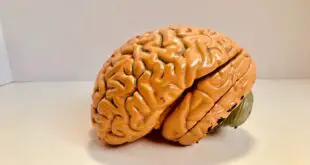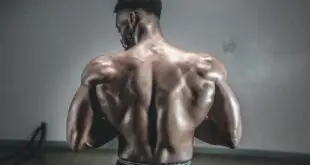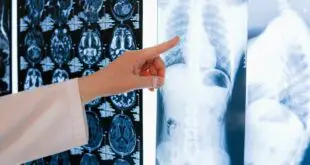Superhero movies and fantasy films get many people wondering, can humans have superpowers? This is a widely discussed question; hundreds of conspiracy theories about it and how we will get to the point of having extraordinary abilities.
Some people believe that evolution will make us more adept at our environment, while others believe science and technology are the keys to our improvement. Today we will dive into the details and see what humanity’s prospects for superpowers are;
Can Humans Have Superpowers?
Many theories suggest humans might evolve past what we currently are, but none support the idea of superpowers. Naturally occurring abilities are a far-fetched concept, and human evolution can’t change to that extent.
Humans do not have the superpowers represented in literature. Superpowers, as depicted in comic books, movies, and other forms of media, often entail remarkable skills such as flying, super strength, or telekinesis that exceed regular human capabilities.
Humans may develop extraordinary skills and powers through committed training and practice. Individuals may achieve great physical strength through rigorous workouts and training programs.
Highly trained players frequently display exceptional ability in their chosen sports. Furthermore, some people may have unusual talents or skills that appear extraordinary to others.
These can include fantastic memory, heightened perceptions, or cognitive talents. While not superpowers, these characteristics are uncommon and can be advantageous in certain situations.
Understanding The Science Of Human Potential
Understanding the science behind human potential is critical for investigating whether people can have superpowers. Humans have exceptional skills, yet their biology and physiology restrictions limit them.
Humans have developed physical and cognitive abilities that make them well-suited for survival and adaptability. These skills, however, are finite and have natural limitations.
Humans, for example, have a range of strength, endurance, and sensory perception determined by their genetic composition and physiological structure.
While the human brain is highly complex, it also has limitations. Biology and individual variation influence memory capacity, cognitive processing speed, and attention span.
While some people have remarkable cognitive abilities, such as photographic memory or mathematical prowess, these abilities are within the spectrum of what the human brain is capable of and are not supernatural.
Furthermore, the human body is prone to physical and mental exhaustion, injuries, and the consequences of aging.
These characteristics emphasize the limits of human potential and the requirement of training, practice, and skill development to achieve peak performance.
Understanding the scientific principles that control human capacities allows us to appreciate individuals’ incredible efforts while also realizing the limits of human potential.
While people cannot have superpowers as described in fiction, the fulfillment of human potential can nonetheless be awe-inspiring and inspire us to push forward to new heights of human achievement.
What Are Some Real-Life Theories About Humans Getting Superpowers?
Humans have always been curious about getting abilities, and there are many inspirations for this desire. There are hundreds of superhero movies with unique origins, and they all stem from real-life theories. So what are some potential ways for humans to gain superpowers?
1. Genetic mutations. Genetic mutations may result in unusual physical attributes or talents. Myostatin-related muscular hypertrophy, for example, is a condition in which people have considerably increased muscle mass and strength.
While not a hypothetical superpower, it demonstrates the possibility for genetic variances to result in outstanding physical qualities.
2. Transhumanism. Transhumanism is an interdisciplinary field that studies the technological augmentation and development of human capacities.
Transhumanists think that advances in domains such as prostheses, genetic engineering, and brain-computer interfaces will result in increased human capacities.
While these upgrades may not look like typical superpowers, they have the potential to push the limits of what humans are capable of.
3. Human potential and consciousness. Some philosophical and spiritual perspectives hold that humans have untapped potential that exceeds their current capacities.
Self-actualization, meditation, and altered states of consciousness are being investigated as potential avenues for uncovering dormant talents or abilities. However, no scientific evidence supports these statements, and much of the argument is speculative.
4. Psychic skills. According to certain hypotheses, psychic skills such as telepathy, precognition, and telekinesis exist.
While there have been countless reports of psychic occurrences, comprehensive scientific researchers have failed to produce conclusive evidence of their reality. These claims are widely regarded as pseudoscience by the scientific community.
5. Energy manipulation. Certain esoteric beliefs and alternative medical methods include manipulating energy fields within the body or the surrounding environment.
These techniques imply that people may channel and direct healing energy. However, there is no scientific evidence to substantiate the existence of such energy fields or their ability to influence them.
6. Biohacking and body modifications. Some people experiment with unusual techniques for improving their physical or cognitive talents, such as biohacking or body modifications.
Techniques such as implanting technology, experimenting with nootropic drugs, or employing severe training regimens can all be used. While these procedures may result in some improvements, they do not offer traditional superpowers.
What Are Some People That Seem To Have Real-Life Superpowers?
Humans have successfully honed some skills to the extent that made them seem like they have superpowers. These skills combine talent, hard work, training, and genetic factors. Here are some people with real-life superpowers;
- Wim Hof (also known as “The Iceman”). Wim Hof is well-known for his ability to survive subzero conditions.
He has established world records for enduring frigid temperatures and devised a methodology incorporating breathing techniques, cold exposure, and meditation.
While his talents are impressive, they are due to his unique physiological and mental training that makes them superhuman qualities.
- Daniel Tammet. Daniel Tammet is an autistic genius with extraordinary mathematical and mental abilities. He can do complex mathematics in his head and has established records of reciting pi to a large number of digits.
Tammet’s exceptional cognitive talents are due to his unique brain wiring, and his feats make him one of the most mentally impressive people on the planet.
- Isao Machii. Isao Machii is a modern-day samurai known for his exceptional swordsmanship. He has chopped many objects with incredible precision and speed, including fast bullets and flying objects.
Rather than supernatural talents, his remarkable reflexes and hand-eye coordination are the consequence of dedicated training and polishing his skills.
- Stephen Wiltshire is an autistic artist with exceptional photographic memory and artistic talent. After only a little inspection, he can generate detailed and realistic drawings of landscapes and cityscapes.
Wiltshire’s extraordinary artistic abilities are credited to his impressive recall and attention to detail. This is an incredible talent shared by a few people globally, most of whom are autistic.
- Hafthor Bjornsson, widely known as “The Mountain,” rose to prominence as a professional strongman and actor. He set several world records in strength sports and rose to prominence as Ser Gregor Clegane in the HBO series Game of Thrones.
While Bjornsson’s stature and strength are astounding, they result from hard work, genetics, and specialized athletics.
Superpowers Through Technology And Human Enhancement
Technological advancements have created new opportunities for boosting human capacities beyond their inherent boundaries.
While these improvements may not provide traditional superpowers, they can push the limits of what people are capable of.
Prosthetics and exoskeletons are one field of study. These technologies aim to restore or increase physical abilities in those who have lost limbs or have impairments.
Innovative prosthetic limbs, for example, can enable increased mobility and agility, allowing users to do previously impossible tasks.
Exoskeletons, conversely, can provide superhuman strength and endurance, allowing people to carry enormous loads and do physically demanding tasks. Militaries and emergency services are investigating such studies to improve efficiency and save lives.
Neurotechnologies and brain-computer interfaces (BCIs) are another area of interest. BCIs create a direct communication channel between the brain and external equipment, allowing people to control computers, prosthetics, and even robotic systems with their minds.
As technology advances, BCIs may improve cognitive capacities such as memory, attention, and learning speed. It’s critical to think about the ethical consequences of human augmentation technologies.
Accessibility, equity, and the possibility of generating inequities between augmented individuals and others who cannot buy or use such technologies are all raised as concerns. Having superior individuals might cause unrest and injustices the Governments aren’t equipped to handle.
Concerns like privacy, security, and the long-term repercussions of incorporating technology into the human body must also be addressed. We are still a few decades away from such advancements, but big companies are making headway.
Conclusion
Humans can’t have superpowers like depicted in movies and comic books, but with proper training, they can hone their skills and reach a superhuman level. Natural evolution is unlikely to give us superpowers, so most people look to technology and science.
The combination of humans and machines is the best option when it comes to improving the human condition. There are theories about supernatural abilities like telekinesis and psychic capabilities, but none have scientific backing to prove their authenticity.
 Being Human
Being Human




